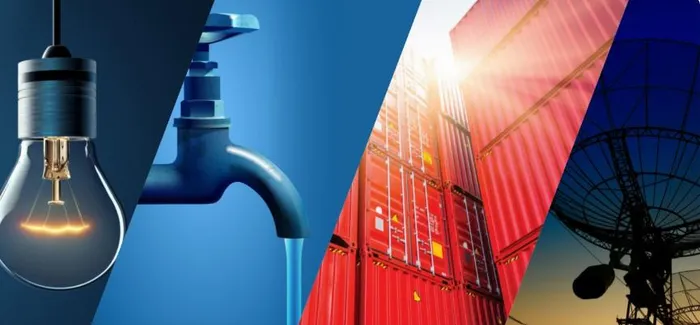
Operation Vulindlela Phase II covers 30 structural reforms, spanning energy, logistics, water, local government, spatial integration, visas, and digital transformation.
Image: Supplied
South Africa’s ambitious reform drive under Operation Vulindlela gained significant traction in the second quarter of 2025/26, with notable progress in the energy, logistics, and digital transformation sectors, according to the latest progress report released on Friday.
The government’s structural reform initiative — jointly coordinated by the Presidency and the National Treasury — aims to remove key obstacles to economic growth by modernising critical sectors such as electricity, transport, water, and local government.
Operation Vulindlela Phase II covers 30 structural reforms, spanning energy, logistics, water, local government, spatial integration, visas, and digital transformation.
According to the second quarter dashboard, 44% of reforms are on track, while 40% are delayed but progressing.
The Presidency said the reform drive “continues to unlock private investment, build state capability, and place South Africa on a new growth trajectory.”
Rudi Diks, head of project management office at The Presidency, said on Friday that Operation Vulindlela is still on track to help the economy achieve 3.5% growth by 2029.
"We've got to aim for the 3.5% and more. The reforms are just all but one of many of the strategies that we've got to implement, but it is the most key. It's what brings confidence. It's what brings private sector investment and eventually infrastructure investment growth and inclusiveness in the way that we're trying to build on the reform programme," Dicks said.
"A lot of it is on track, but there were two reforms that are slightly off track and they relate to the unbundling in Transnet and unbundling in Eskom. They're quite complex. It's about ensuring that we do it right, that we do unbundle properly."
According to the progress report for the second quarter, major strides were recorded in the electricity sector, with preparations to establish a competitive wholesale electricity market now well advanced.
The National Transmission Company of South Africa (NTCSA) has applied to the energy regulator Nersa for a market operator licence, while a new Market Code and Grid Capacity Allocation Rules are being finalised to enable fair and transparent access to the grid.
The 2025 South African Renewable Energy Grid Survey found that 220GW of solar, wind and battery projects are in development, of which 72GW are already at an advanced stage.
Eskom, meanwhile, returned to profitability for the first time in eight years, boosted by operational recovery and debt relief measures.
Additionally, six preferred bidders with a combined capacity of 1 290MW were announced in the latest renewable procurement round, while the 153MW Red Sands battery project in the Northern Cape reached commercial close.
In the freight sector, government has made headway in opening up the rail network to private operators. Eleven new train operating companies have been allocated slots on 41 routes, a landmark step toward a more competitive freight logistics system.
The implementation of Transnet’s Recovery Plan helped increase freight volumes to over 160 million tons, reversing a multi-year decline. According to the Bureau for Economic Research, logistics reforms could unlock up to R200 billion in new investment over the next five years.
Progress also continued in the water sector, where the Water Services Amendment Bill and the National Water Resources Infrastructure Agency (NWRIA) Bill were tabled to strengthen regulation and service delivery.
The agency’s establishment is expected by April 2026, while several public-private partnerships — including the Umhloti and Umkomaas wastewater projects in eThekwini — are moving toward implementation.
The Department of Home Affairs has cleared a decade-old backlog of more than 300 000 visa applications, while the Electronic Travel Authorisation (ETA) system has been rolled out for G20 countries. The Trusted Tour Operator Scheme has already supported 35 000 tourist arrivals from China and India, creating over 1 200 jobs.
On the local governance front, the review of the White Paper on Local Government received 266 submissions and will inform a new framework by 2026. The Metro Trading Services Reform Programme is under way in seven metros to professionalise water and electricity services.
In spatial development, the government is finalising a demand-side subsidy for affordable housing and has launched efforts to release public land for development. The Central Line in Cape Town is on track for full restoration by November 2025.
South Africa is positioning itself as a leader in Digital Public Infrastructure, with the MyMzansi data exchange and Gov.za digital platform nearing launch. These will enable secure access to public services and data sharing between departments. A national Digital Government Standards Framework is also being developed to improve interoperability and efficiency across the state.
BUSINESS REPORT